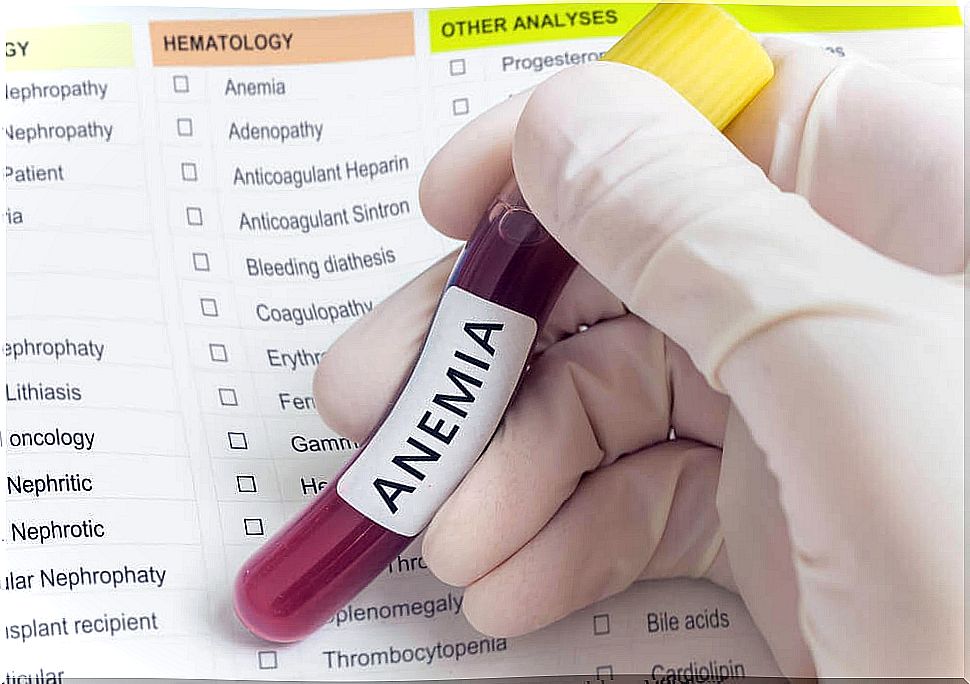Swollen Spleen: Symptoms And Treatment
An enlarged or swollen spleen is a condition that is also known as splenomegaly. In its normal state, the spleen is the size of a fist; however, due to the development of certain infections and diseases, its size can increase.
The spleen is a very important organ for our lymphatic system. Its basic functions are to store white blood cells and help in the creation of antibodies to defend the body against certain diseases.
On the other hand, it intervenes in the filtering of bacteria coated with antibodies, helps to process old red blood cells and, in addition, recycles iron into hemoglobin. Due to this, when it suffers some type of alteration, several health problems can occur.
Causes of a swollen spleen or splenomegaly
There are a wide variety of diseases that can cause a swollen spleen. This problem may be temporary, depending on the treatment you are given. However, some cases become chronic. The causes, according to information published in the National Center for Biotechnology Information , include:
- Liver disease (cirrhosis, hepatitis)
- Inflammation (sarcoidosis, lupus, rheumatoid arthritis, systemic lupus)
- Hematologic malignancy (lymphomas, leukemias, myeloproliferative disorders)
- Splenic sequestration (pediatric sickle cells, hemolytic anemias, thalassemias)
- Congestion (splenic vein thrombosis, portal hypertension, congestive heart failure)
- Acute or chronic infection (bacterial endocarditis, infectious mononucleosis, HIV, malaria, tuberculosis, histiocytosis)
- Others (metastases, abscesses, trauma, hemangiomas, rare drug reactions, cysts, Gaucher disease, Niemann-Pick disease)
Symptoms of a swollen spleen
Coinciding with a publication on the Mayo Clinic page, many patients are unaware that they have a swollen spleen because they do not have symptoms. Many discover it in a routine physical exam. However, on suspicion, the doctor may suggest some complementary tests to confirm the diagnosis and determine its cause. Symptoms include:
1. Anemia

The spleen, as we have mentioned before, is intended to purify our blood. Clean blood is, so to speak, one more piece of our lymphatic system that ensures that our red and white blood cells are strong, healthy and in full condition to perform their essential function.
If the spleen is inflamed, clearance is not carried out properly. So, it is very possible that there is an alteration in our red blood cells, a deficit that causes anemia. Whenever you are diagnosed with anemia, it is important to know what the origin of it is.
2. Tiredness
This symptom is manifested when, for example, we are short of breath when we make an effort, when walking or carrying weight; also when we have a hard time getting up in the morning.
Keep in mind that, when suffering from anemia, fatigue is always related to that lack of red blood cells. This reluctance will get worse day after day, until it reaches exhaustion. Try to go to the doctor first and not go to this extreme.
3. Sharp pain
Pain is a direct and unavoidable symptom of a swollen spleen that is easy to identify: it is centered in the upper left part of the abdomen. At times, it can go up the back to the left shoulder.
Definitely , the discomfort is always centered on the left side and is very painful. In fact, even the sick person may find it difficult to breathe. This symptom requires urgent medical attention.
4. Lack of appetite

It is another very indicative symptom. We lose our appetite because we feel full ; It is enough to eat very little to feel very full.
The cause may be the swollen spleen. Being larger than normal, this organ oppresses the stomach and gives us the false feeling that we are full.
It is very common that, little by little, and because of this, we lose weight. Be careful with this, as we will also weaken.
5. Wounds that bleed more
Curious but true. The reason? The inflamed spleen accumulates more red and white blood cells inside it and prevents them from reaching our body properly.
As we have already pointed out, the lack of red blood cells leads to anemia and, at the same time, the absence of white blood cells means that we have fewer platelets. With this combination, when faced with a wound, we will notice that more blood comes out than normal. That is, there are not those small agents that plug the wound, contain it and heal it.
How is a swollen spleen treated?
Treatment of the swollen spleen is geared towards the pre-existing problem. Thus, if its origin is a bacterial infection, antibiotics are used. If it is due to other diseases, the doctor will create a treatment according to the needs.
It is necessary to limit any form of physical activity or overexertion that can rupture the spleen. A ruptured spleen can lead to significant blood loss and be life-threatening. If not treated in time, the swollen spleen can lead to serious complications.
When first-line treatment doesn’t work to stop this problem, the spleen needs to be surgically removed (splenectomy). If so, some vaccines and medications are also necessary, as the body is susceptible to infection.
Ultimately, the recognition of the symptoms and a prompt medical diagnosis helps to avoid the considerable consequences of this condition. Keep that in mind!









